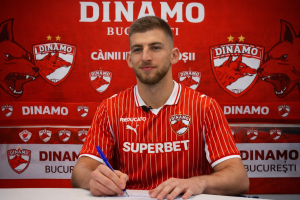
Are the Maple Leafs Too Top-Heavy? Could Marner’s Next Deal Surpass Matthews’ in Monday Morning Leafs Report?
As the NHL season unfolds, the Toronto Maple Leafs find themselves once again under the microscope, with attention shifting to their roster composition and the financial decisions that could shape the future of this perennial contender. The question on the minds of many: Are the Maple Leafs too top-heavy? And, could Mitch Marner’s next contract surpass that of Auston Matthews? These are the burning topics being discussed as the team pushes forward in a season where the stakes feel higher than ever.
The Maple Leafs’ High-Priced Stars
At the heart of Toronto’s roster are the elite talents of Auston Matthews, Mitch Marner, John Tavares, and William Nylander. These players represent the cornerstone of the franchise, with each being paid handsomely for their efforts. Matthews, the club’s biggest star, currently sits with the highest salary at $11.6 million per season, a contract that runs through the 2023-2024 season. Following close behind is Marner, with a cap hit of $10.9 million, while Tavares and Nylander round out the group with salaries of $11 million and $6.9 million, respectively.

These four players account for a significant portion of the team’s salary cap, but it’s Matthews and Marner who seem to be the subject of much of the speculation surrounding the team’s financial future. With both players nearing contract negotiations, the question arises: Could Mitch Marner’s next contract actually eclipse Matthews’ in terms of value?
The Marner-Matthews Comparison: A Shifting Dynamic
Auston Matthews has long been considered the face of the Maple Leafs. His elite goal-scoring ability, physicality, and leadership make him one of the most dominant players in the league. However, Mitch Marner, despite being more of a playmaker than a goal scorer, has arguably been just as impactful. His vision, passing, and overall hockey IQ have made him indispensable to the Leafs’ top line.
While Matthews’ contract was a record-setting deal at the time of its signing, the landscape of the NHL has changed, and player salaries are rising with each new contract. Marner’s play this season could give him the leverage he needs to command a deal that exceeds Matthews’ in total value or annual salary. The reality is that in the salary cap era, contracts are not just about production on the ice, but also about market value and the changing expectations surrounding top-tier players.
What Could Marner’s Deal Look Like?
If Marner’s next deal surpasses Matthews’ in terms of average annual value (AAV), it would represent a dramatic shift in the market for elite forwards. Given Marner’s status as one of the top playmakers in the league and his consistent production over the years, it’s possible that he could demand a deal in the $12 million per year range—if not more. With the salary cap expected to rise in the coming years, this could place Marner on par with, or even above, Matthews in terms of cap hit.
Marner’s agent is likely to point to the rising salaries of players like Connor McDavid, Leon Draisaitl, and Nathan MacKinnon, all of whom have secured contracts that exceed $12 million annually. The reality is that Marner’s next contract will not only reflect his past performance but also the increasing value placed on elite forwards in the NHL.
The Risk of Being Too Top-Heavy
While paying top-dollar for star players is a strategy that has worked for many teams, it also comes with significant risk. The Maple Leafs have already invested heavily in their core four players, but the rest of the roster has often been criticized for lacking depth. A top-heavy roster can be difficult to maintain in the salary cap era, as teams need to allocate resources across all positions to be truly competitive.
If Marner’s next deal exceeds Matthews’, it would exacerbate the team’s financial situation. The Leafs would need to make some difficult decisions, possibly parting with some of their supporting players or choosing not to extend contracts for role players who have been valuable contributors. It could create an imbalance in the roster that could hinder the team’s overall performance, especially in a league that values balanced depth across all four lines and defensive pairings.
The Long-Term Impact
In the long term, paying both Matthews and Marner at the top of the market could create a championship-caliber roster with high-end talent, but it would also limit the flexibility Toronto has to make key acquisitions or bolster their depth. The Maple Leafs would need to make some hard decisions about how to allocate their resources, especially with the potential need to extend Nylander and Tavares in the coming years.
The question will ultimately come down to whether Toronto’s front office believes that a top-heavy roster with an exorbitant salary structure is the right path toward a championship or whether they should take a more balanced approach.
Conclusion: A Critical Juncture
The Toronto Maple Leafs are at a critical juncture in their franchise’s trajectory. As they inch closer to negotiating new contracts for both Matthews and Marner, the team faces some tough decisions about how to allocate its resources. A Marner deal that exceeds Matthews’ in value would signal a shift in the power dynamic within the team, one that could either solidify their top-heavy approach or force them to reconsider their strategy for building a balanced, sustainable contender. Either way, the next few months will be pivotal in shaping the future of the Leafs, as they look to secure a long-awaited Stanley Cup while managing the financial realities of an elite, top-heavy roster.







